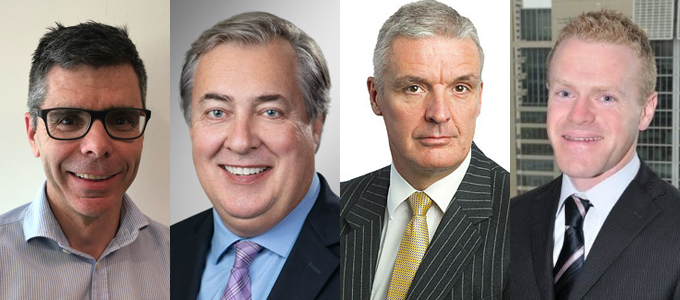Inflation the next bogeyman as the world recovers
by Greg Bright
Morningstar Australia and New Zealand presented its view of the world going forward in a webinar last week (June 4) together with that of two funds managers. Several good tips emerged, such as a strong buy on gold, but the combined view was not so clear. The prospect of a return of inflation was an overarching theme.
From an immediate investing perspective, for big and small investors alike, the other over-arching themes, right now, were dealing with expensive equities and risky sovereign bonds. The recent significant kick-up in the value of the Aussie and Kiwi dollars versus the greenback added to the conversation. Are the Australasian currencies now fair value or over-valued?
On the webinar were: Morningstar’s moderator, Tim Murphy, director of manager research for APAC; Tony Cousins, the chief executive and CIO of Pyrford International, a subsidiary of BMO Global Asset Management; Michael Kelly, CIO and global head of multi-asset investments for PineBridge Investments; and, Matt Wacher, Morningstar’s CIO for APAC. Alternatives and emerging markets also came under scrutiny as forms of new value-add given the total environment.
Morningstar’s Matt Wacher said parts of the equities remain attractive, but some equities were at very expensive valuations, and that bonds were similar because of the risks, which were inflation and then higher interest rates. The Aussie dollar, which tends to go in lock-step with the Kiwi, was “about fair value” at 69c to the US$1.00. But much above 70c might be getting expensive, he said. Morningstar is advising investors to hold some US dollars in their portfolios for diversification.
Pyrford’s Tony Cousins said his firm felt both the Aussie and US dollars were expensive and the trend with bonds and currencies still had some way to play out. “With bonds, if the yield goes up by only 100bps you’ll lose 25 per cent of your money,” he said. “We don’t see any inflation anytime soon but if and when it happens the bond markets are not priced for it and there will be massive capital losses. That’s why are in very short duration [instruments].”
Kelly advised the audience to not look back too far for guidance in what to do in the current crisis. “We prefer to study valuations over a five-year period,” he said. “Over a 50-year period it means absolutely nothing… Granted things look expensive [now] , and you have to wonder where’s the escape hatch. It’s not a pretty picture and it gets even uglier when you look at the rates curve… What I’m really saying is that for about 15 per cent of the time the markets are ‘risk off’ but for the other 85 per cent of the time we are happy to deploy capital.”
Kelly, who believes gold is a good investment in the current situation – rare for a big institutional manager advise clients on gold. Gold is very influenced by geopolitical risks,” he said. “It’s been high for the past two-three years and we think it will stay high for the next two-three years.” He ranked best opportunity asset classes as: “core privates, core infrastructure and gold as number three”.
Cousins said the aim should always be to not lose money, whatever happens. With bonds, he said the best bets were in short-duration high quality bonds “outside the Aussie dollar”.
On alternatives, Morningstar’s Wacher said that they had tended to be among the worst-performing sectors in the firm’s portfolios since the last quarter of 2019. “We’re reviewing them now,” he said. From a growth perspective, Morningstar was positioning itself in emerging market equities and energy.
Tim Murphy added that the value of financial advice for investors had never been more important than now.










